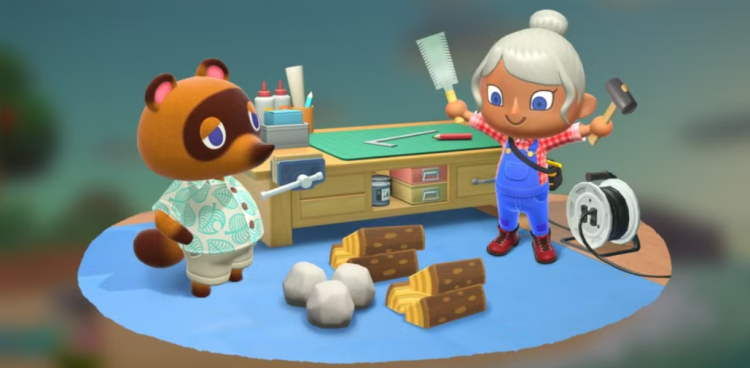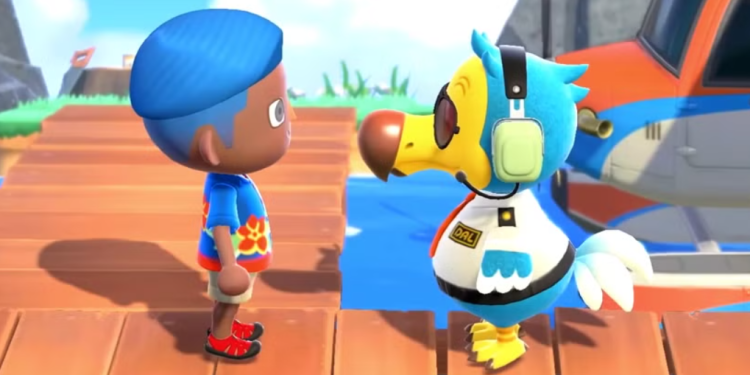Animal Crossing’s Next Game Needs to Ditch Tool Durability
Animal Crossing: New Horizons brought fresh features like terraforming and island design freedom, but it also introduced one gameplay mechanic that constantly disrupted the relaxing pace — tool durability. While it fit survival games and even worked in other Nintendo titles like Breath of the Wild, it clashed with the life-sim formula of Animal Crossing. Fans have been dealing with it for five years, and if the next game lands on the rumored Switch 2, this feature needs to be left behind.
When New Horizons launched, it was praised for letting players take unprecedented control over their islands. You could sculpt cliffs, redirect rivers, place furniture outside, and design dream neighborhoods. Starting from a deserted island gave the game a fresh progression loop — collect resources, build infrastructure, attract villagers, and slowly turn the wilderness into a bustling community. The ability to visit other islands, both offline and online, ensured players rarely ran out of things to do.
The game also added quality-of-life changes like autosave, larger inventories, more furniture customization, and the Island Designer tool, which unlocked deep terraforming possibilities. It blended classic Animal Crossing charm — chatting with quirky villagers, fishing at sunset, decorating your home — with modern systems that made the experience richer.
But tool durability was a step in the wrong direction.
In New Horizons, every tool had an invisible HP bar that ticked down with use. When it hit zero, the tool would break and disappear. Early in the game, this meant constantly spending materials like wood, iron nuggets, or stone to make replacements. You could upgrade tools to last longer, but they were never permanent.
The problem wasn’t the concept of upgrading tools — that’s a long-standing and rewarding part of the series. Stronger tools make gathering resources easier, and unlocking them feels like progress. The issue was that durability created constant interruptions. Imagine fishing, mining, or catching bugs only to have your net or shovel break mid-session. You’d have to abandon what you were doing, either trek back to a workbench or keep spare tools in your already limited inventory.

In survival games like Minecraft or Valheim, durability makes sense — resource gathering and crafting are core challenges, and tool loss is part of the loop. In action games like Breath of the Wild, weapon breaks force creative improvisation, adding tension and variety to combat. In New Horizons, it just felt like busywork. There’s no adrenaline rush when your shovel breaks; just irritation and a trip back to craft another.
Some players hoped Nintendo would fix it in updates. The game did receive post-launch improvements, new events, and seasonal content, but durability stayed the same. Removing it entirely might have made tools trivial — you could craft them early and keep them forever. But there were ways to make it engaging without being a chore.
For example, durability could have been tied to fun, reactive events. Instead of breaking outright, tools could enter a “worn” state, reducing efficiency or producing quirky effects until repaired. Or rare random events could temporarily boost durability, encouraging players to use their favorite tools more. Breath of the Wild’s approach — turning a break into an opportunity for improvisation — could also have been adapted.

Unfortunately, that kind of deep mechanical rework is unlikely for New Horizons now. The game has been out for years, and its major update cycle is over. That means any fix will have to come in the next entry.
Animal Crossing thrives when it’s slow and steady — a relaxing loop of collecting, customizing, and connecting with characters. Tool durability disrupts that flow without offering a meaningful payoff. The next game should focus on progression that’s rewarding but never feels like a grind, letting players lose themselves in the charm of the world instead of staring at a workbench for the hundredth time.
If Nintendo does bring the series to Switch 2, it has a chance to keep all the freedom and creativity of New Horizons while cutting the one feature that consistently frustrated players. After five years, tool durability has had its run — and it’s time for Animal Crossing to move on.

Comments